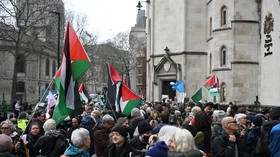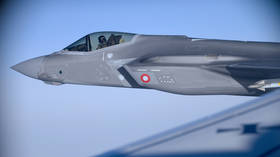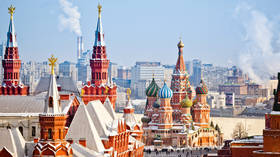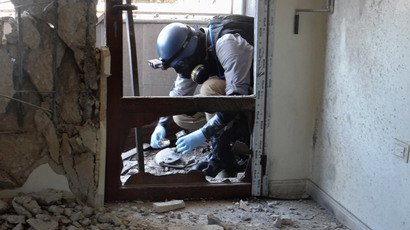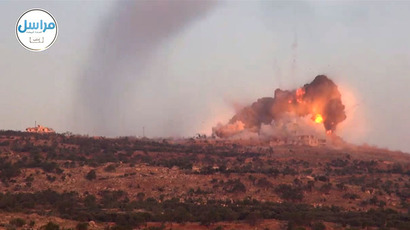‘It’s our right!’ Syria votes for president in controversial election amid civil war
Polling station across war-torn Syria have opened for the first multi-candidate presidential election in more than 40 years. Despite loud calls in and outside the country to boycott the vote, many Syrians still want their voices to be heard.
Over 9,000 polling stations have been set up in
government-controlled areas of Syria for some 15 million eligible
voters. But not everyone will be able to cast their ballots, as
rebel-held regions in northern and eastern Syria won’t take part
in the election.
The inability to hold a truly nationwide vote in a country where
the bloody civil war still rages is one reason opponents of the
current authorities in Syria have described the election as a
sham.
Another bit of criticism is that the Syrians have not been given
an opportunity to make a genuine choice. President Bashar Assad
is challenged only by two relatively-unknown government-approved
candidates, and is expected to win comfortably.

The head of the main opposition group uniting 12 fractions in and
outside Syria, Hassan Abdul Azim, doesn’t believe Tuesday’s vote
will change anything.
“A candidate should get the support of 30 percent of the
people’s assembly – the body elected by authorities,” Azim
told RT. “Which means there is no challenge, no change. It’s
a parliament again, and there can’t be any opponent. This is why
it’s formal, and illegitimate. This is why we reject it.”
There has also been an online campaign in Syria for boycotting
elections. Several groups on Facebook have been calling on people
not to vote for those “responsible for the bloody
conflict.”
#Vote for more blood in #Syria .. #SyrianElection#illections #وطي_صوتكpic.twitter.com/58gPN6Hkxf
— Tony al Taieb (@TonyTaieb) May 28, 2014
RT’s Maria Finoshina, reporting from Damascus, has however come
across many election supporters in the streets of the Syrian
capital.
“This is our duty, we can't allow people from outside to
decide for us. Our duty is to vote – in order to protect our
country,” says Usam Hammami, a Damascus resident.
Ali Neezam, a nut shop assistant gets emotional: “Even if
there are mortar bombs like the terrorists promise us, we’ll go
and vote for Bashar Assad. This is our right!”
The terrorist threats don't scare us & today is our right & our duty to fit the aspirations for the future of #Syria. pic.twitter.com/zl9lU85qsN
— Bashar Isham AlAssad (@Isham_AlAssad) June 3, 2014
Rustam Chehayed, a Syrian citizen, who took refuge in Italy three
years ago, when the unrest started, returned to Damascus to cast
his ballot in the country’s presidential election. He does not
understand why the West embraced the election in Ukraine, despite
military actions there, yet called for a boycott of the poll in
Syria.
“The Italian government prevents us from voting, it deprives
us from our right,” Chehayed told RT. “You can't vote at
the embassy there! I believe Syria's future should be decided by
the Syrian people not but other countries’ governments.”
Countries like France, Germany and Belgium, as well the United
Arab Emirates, have also prevented Syrians from voting at their
embassies. Some, like political writer and journalist Dan
Glazebrook, sense double standards in the Western countries’
approach to the Syrian elections.
“It really shows the contempt that the Western countries have
for democracy,” Glazebrook told RT. “They have been
calling for democracy in Syria for years, and when the elections
take place they not only denounced them, but actually banned
Syrians from taking part in them.”


